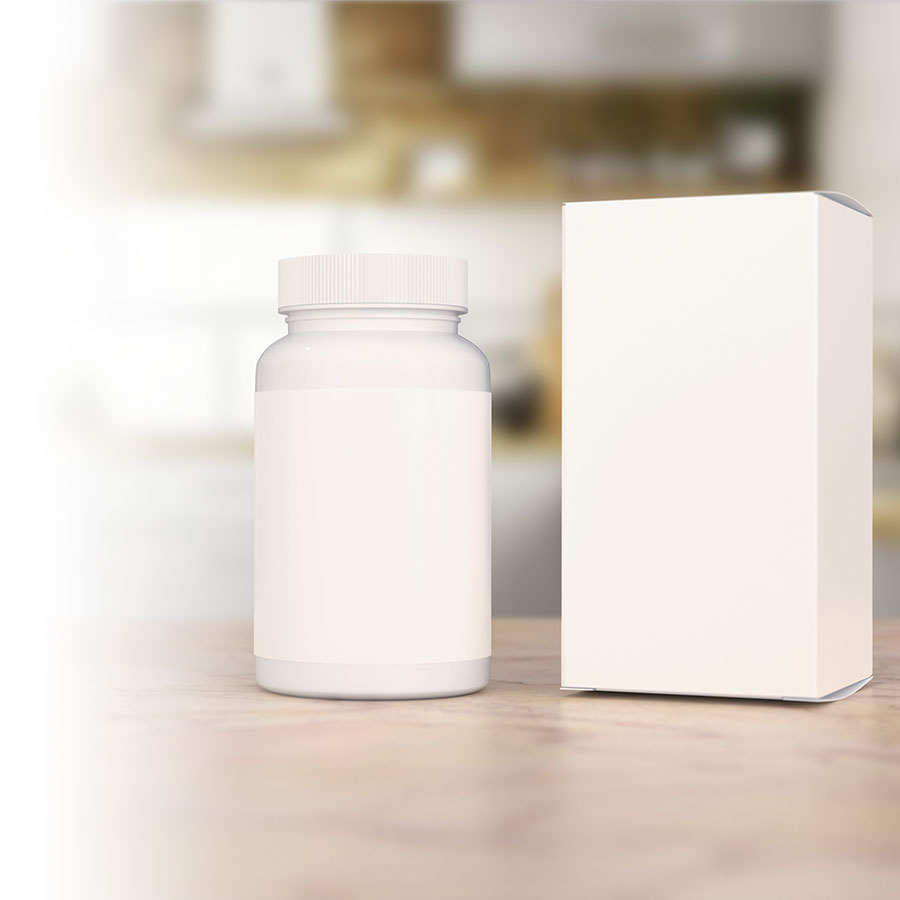Why do generic drugs cost less? Are they as effective as brand-name drugs? Let’s shed some light on the subject.
What is a generic drug?
When purchasing medications at the pharmacy, with or without a prescription, it is often possible to choose a generic version. This option is certainly cheaper, but is the quality, effectiveness and safety of these products reliable?
A generic drug is a reproduction of the original drug or the brand-name drug. A brand-name drug is one that has been commercialized first by the company that discovered it. The company must prove the drug’s quality, effectiveness and safety before it is put on the market. The government body responsible for approving the market release of a drug is Health Products and Food Branch.
The approval process of a drug is long, complex and expensive. When a new brand-name drug arrives on the market, it has a patent giving it market exclusivity for a certain number of years. After this protection period, the original drug can be copied and sold as a generic drug for less.
Is the use of generic drugs widespread?
Many people like having access to generic versions of a drug, as this can substantially reduce costs. In Canada, roughly 70% of prescriptions are filled with generic drugs.
Additionally, most hospitals provide generic drugs almost exclusively. If you have ever been hospitalized, it is very likely they you took generic drugs, whether or not you were aware of it.
Many medications are available in generic form, which most of the time, is manufactured by several different companies. All generic versions of the same drug are considered equivalent and offer the same quality, efficacy and safety. Moreover, the cost of the various formulations is the same, regardless of the generic company that manufactures them.
Why do generic drugs cost less?
Some people may believe that generic drugs cost less because they are different from the brand-name drug or of lesser quality. However, this is not the case. The reason is that generic companies do not have to cover the costs related to research, development and market release. These substantial costs are absorbed by the brand-name company.
Therefore, the main difference between a generic drug and a brand-name drug is the price. Generic drugs cost about 40% less on average. This is a big advantage for the customer, who benefits from a reduction on the prescription price, but also for insurance companies and governments, who have an interest in reducing drug-related costs. Why pay more for a product of equal quality that is available for less?
What are the differences between a generic drug and a brand-name drug?
Aside from the price, there are very few differences between the brand-name drug and the generic. A generic drug must comply with the same norms and meet the same quality standards as a brand-name drug. Like brand-name drugs, generic drugs must be approved by Health Canada following numerous reviews and product analyses.
The active substance contained in the generic product is exactly the same, in equal quantity. It is the same drug, with the same content that your doctor prescribed on the prescription. It is the non-medicinal ingredients that can differ slightly. These ingredients can impact the appearance, format, colour and smell of the final product. They do not affect the efficacy or the safety of the drug. Thus, your response to the treatment should remain the same.
In order for a drug to be approved by Health Canada, the generic company must demonstrate its bioequivalence. In simple terms, a drug is considered bioequivalent to another when analyses show that a drug is found in the blood in the same amount as the original drug, and is absorbed and eliminated by the body at a similar rate. Two bioequivalent drugs are expected to cause the same effects; in other words, a similar therapeutic response in terms of efficacy and of adverse effects.
Who decides whether or not I should take a generic drug?
You do! Your pharmacist can replace a brand-name drug with a generic drug without having to consult your doctor. However, pharmacists must inform you and obtain your consent. Put your trust in them: if they suggest it, it’s because they are certain that it’s the best treatment choice for you at the best possible price.
From now on, when your pharmacist suggests a generic drug instead of a brand-name drug, you will be better informed, and hopefully, reassured. Speak to your pharmacist if you have any other questions about generic drugs in general or about specific medication being proposed to you. Don’t hesitate to ask questions and to share any doubts or misgivings you may have. They will be happy to answer your questions and provide advice to help you make a well-informed choice.
Your pharmacist is your best ally to answer any medication or health-related questions.

